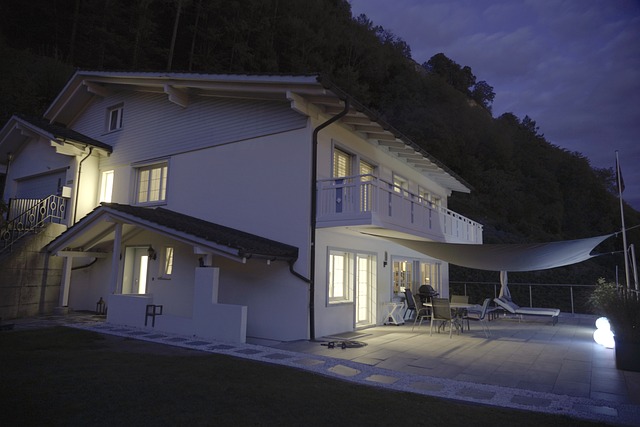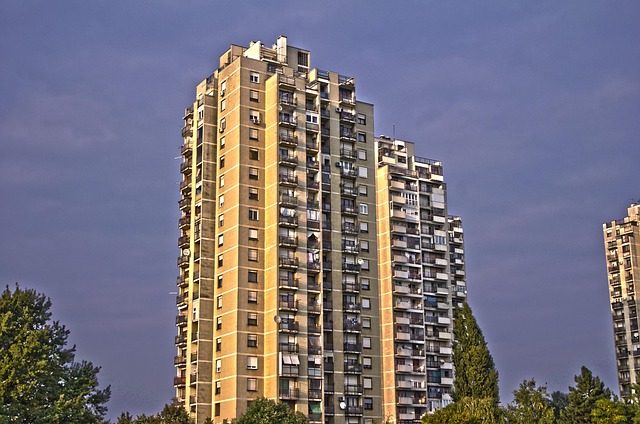In Singapore, Executive Condos (ECs), a significant housing segment regulated by the Housing & Development Board, are governed by various legal aspects crucial for buyers, developers, and investors. Key considerations include the Legal Services Act, minimum occupancy periods, resale restrictions, and restrictive covenants to maintain community stability. Top-tier EC projects face stringent regulations, including the Builder's Warranty Scheme and Building and Construction Authority (BCA) safety standards. The Strata Titles Act manages ECs as collective properties, focusing on transparent decision-making by the Condominium Management Company. Disputes over common facility access, boundaries, and maintenance are common, requiring clear community by-laws. BCA strictly regulates luxury high-rise developments, ensuring safety and sustainability. Owning a Big EC in Singapore presents tax complexities that owners must be vigilant about understanding.
In Singapore, executive condos (ECs) have become a significant segment of the property market, attracting buyers seeking luxury living. However, navigating the legal landscape surrounding ECs is crucial for prospective owners. This comprehensive guide delves into the biggest legal considerations for buying and owning an EC in Singapore. From understanding restrictive covenants to exploring developer obligations and strata management, this article equips readers with essential knowledge to make informed decisions in the high-end condo market.
- Understanding Executive Condos in Singapore: A Legal Perspective
- Ownership and Tenure: Key Legal Aspects
- Restrictive Covenants: What Every Buyer Should Know
- Developer Obligations and Warranties
- Strata Management and Governing Laws
- Common Legal Disputes in Executive Condo Communities
- Planning and Building Regulations for Luxury High-Rises
- Tax Implications and Financial Considerations for Executive Condo Owners
Understanding Executive Condos in Singapore: A Legal Perspective

Executive Condos, often referred to as ECs, are a significant housing segment in Singapore. From a legal standpoint, understanding their unique aspects is crucial for buyers and developers alike. These properties, typically built by private developers under government schemes, offer an attractive middle ground between HDB flats and private condominiums.
Singapore’s Housing & Development Board (HDB) plays a pivotal role in regulating ECs, ensuring they adhere to specific guidelines. These regulations cover various aspects, including property size, design standards, and resale policies. As the biggest EC market in Singapore, navigating these legal parameters is essential for investors and residents alike, guaranteeing fair practices and maintaining the integrity of the real estate sector.
Ownership and Tenure: Key Legal Aspects

In Singapore, ownership and tenure are critical legal aspects for any property, but especially for Executive Condos (ECs), which represent the biggest segment in the local real estate market. The Legal Services Act and relevant regulations govern the transfer of ownership, ensuring transparency and consumer protection. Buyers must understand that ECs come with specific rules regarding minimum occupancy periods and resale restrictions, designed to maintain stability within the community. These legal considerations are key to avoiding disputes and ensuring a secure investment.
Singapore’s Land Titles Office manages the registration of property transfers, offering public access to records, which is essential for buyers to verify ownership and any associated restrictions. The Strata Title Act provides a framework for managing ECs as collective properties, addressing maintenance, repairs, and common areas. Understanding these legal frameworks is vital for prospective buyers to make informed decisions and navigate the complexities of EC ownership effectively.
Restrictive Covenants: What Every Buyer Should Know

Many buyers in the Singapore property market, especially those eyeing Executive Condos, often wonder about the various legal aspects that come into play. One crucial element to understand is the concept of restrictive covenants. These are agreements made between developers and homeowners that outline specific rules and guidelines for the use and management of the property. Restrictive covenants can cover a range of topics, from maintenance responsibilities to restrictions on reselling or renting out the unit.
Knowing these biggest EC in Singapore constraints is essential as they protect not just the developer’s interests but also those of future buyers. For instance, some covenants might dictate how alterations or renovations can be done, ensuring the property retains its original value and aesthetic. Others may outline the process for resolving disputes or managing common areas. Buyers should carefully review these documents to ensure they understand their rights and obligations, thereby making informed decisions when purchasing an Executive Condo.
Developer Obligations and Warranties

In the world of executive condos in Singapore, developers have a set of obligations and warranties they must adhere to. These include ensuring the property meets all safety and quality standards, providing transparent disclosures about the project, and offering adequate warranty coverage for any defects that may arise. The biggest EC in Singapore, with their substantial investments, are subject to stringent regulations aimed at protecting buyers’ interests.
One of the key legal considerations is the Builder’s Warranty Scheme, which guarantees repairs or compensation for major structural defects within a specified period after handover. Developers must also adhere to the Building and Construction Authority’s (BCA) guidelines, ensuring that their projects comply with safety norms and sustainable building practices. Transparency in sales information and fair dealing are cornerstones of the regulatory framework, fostering trust among buyers who are investing significant sums in these premium properties.
Strata Management and Governing Laws

In Singapore, the biggest ec (or executive condominium) developments are subject to strict Strata Management and Governing Laws. These laws are put in place to ensure fair governance and smooth operation within these high-density residential communities. The primary governing body for strata management is the Condominium Management Company (CMC), which oversees the maintenance, security, and common facilities of the executive condo. The CMC operates under the Strata Titles Act, ensuring transparency and accountability in its decision-making processes.
Key legal considerations include clear ownership rights defined by the Strata Titles Registry, dispute resolution mechanisms for residents, and regulations governing alterations or additions to unit properties. Compliance with these laws is crucial for maintaining harmony among residents and preserving the value of executive condos as a prominent housing option in Singapore’s vibrant property market.
Common Legal Disputes in Executive Condo Communities

In any densely populated residential area, including executive condos in Singapore, disputes are inevitable due to differing views on community living. While these conflicts can range from minor disagreements to more significant legal matters, some issues tend to recur more frequently within executive condo communities. One of the biggest challenges often revolves around the Biggest Ec In Singapore—exclusive use and access to common facilities. Disputes may arise when residents disagree on who has priority or exclusive rights to amenities like pools, gyms, or private gardens.
Another common legal dispute involves property boundaries and maintenance responsibilities. Confusion over land ownership lines or disagreements about who is responsible for upkeep and repairs can lead to protracted legal battles. Additionally, issues related to noise pollution, parking spaces, and pet regulations often find their way into community board meetings and, if unresolved, may require legal intervention. These conflicts highlight the importance of clear by-laws, active community engagement, and fair dispute resolution mechanisms within executive condo communities.
Planning and Building Regulations for Luxury High-Rises

In Singapore, planning and building regulations for luxury high-rise developments, often referred to as Executive Condos (ECs), are strictly governed by the Building and Construction Authority (BCA). These regulations ensure that every aspect of construction aligns with safety standards and sustainable practices, reflecting the country’s commitment to quality and innovation. The BCA plays a pivotal role in defining parameters for design, structural integrity, fire safety, and green building initiatives.
When constructing ECs, developers must adhere to the Building Regulations Code and other relevant guidelines. This includes considerations such as floor plans, structural materials, and energy-efficient systems. Given Singapore’s compact cityscape and high demand for residential properties, the biggest challenge lies in balancing luxury amenities with space optimization while meeting the stringent legal requirements, particularly in terms of the Biggest EC in Singapore.
Tax Implications and Financial Considerations for Executive Condo Owners

Owning an executive condo in Singapore comes with a unique set of financial and legal considerations, particularly regarding tax implications. As one of the biggest ECs (Executive Condos) in Singapore, these properties offer significant benefits to their owners, but they also introduce complex tax scenarios.
Taxpayers who own executive condos must be aware of the various taxes applicable, including property tax, which is typically calculated based on the property’s value. Additionally, capital gains tax might come into play when selling such a property. Singapore’s tax system encourages homeownership with certain incentives and exemptions, but it’s essential for executive condo owners to stay informed about any changes in tax policies that could impact their financial obligations.
When navigating the complexities of executive condos in Singapore, understanding the intricate web of legal considerations is paramount. From ownership rights and developer responsibilities to management structures and dispute resolution, this article has illuminated key aspects shaping the landscape of luxury high-rises in the city-state. As the demand for the biggest EC in Singapore continues to grow, prospective buyers must be well-informed to ensure a seamless and legally sound investment journey.
